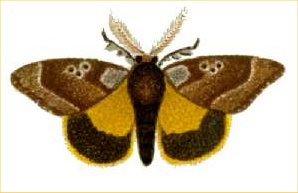Claire Le Couteur reports from the 2003 Skeptics’ Conference in Wellington.
This year’s conference, held at Victoria University, began with a social gathering followed by a presentation by artist and teacher Bill Taylor, who described his “Time Line” installation, which covered three walls of the lecture theatre.
The carefully measured 4.6km of rope were strung in lengths around the room. Articles such as shells, feathers and animal skulls were attached in their appropriate parts of the time line, which provided a visually impressive indication of the time elapsed since the formation of the Earth, with humanity’s portion accounting for only a tiny section at the very end. Bill has been a Royal Society Teaching Fellow this year, resident at the School of Earth Sciences at Victoria University.
Speakers on Saturday covered a wide range of topics, but the startling results produced by Maryanne Garry’s psychology students in their investigations of human memory formation and fallibility made their presentations a highlight.
It was humbling to note that, when asked to watch a short video segment, around a third of the audience failed to spot a large gorilla walk through a basketball game! Small comfort can be gained by the recognition that this is the typical proportion that fails to do so, a salutary warning against potential smugness….
These presentations complemented other talks on progress on the Christchurch Civic Crèche case, given by Lynley Hood, and another about the pitfalls that Skeptics member Jonathon Harper has faced in preparing a paper on the same case.
Several speakers covered the problem of how science is communicated, including the influence of the internet. Bruce Taylor, from the Office of the Parliamentary Commissioner for the Environment made a plea for members to read and make submissions on a discussion paper that is part of a project to examine the role of science in environmental policy and decision-making.
The damp, windy Wellington weather marred the planned visit to the Carter Observatory following dinner at the Skyline Restaurant, making star gazing difficult, but this was compensated for by an illustrated presentation by members of the Phoenix Astronomical Society on the origins and structure of Stonehenge. They also outlined their plans to construct a southern hemisphere copy of Stonehenge (Stonehenge-Aotearoa) at a site in the Wairarapa, for astronomical education purposes. They intend to open this to the public for viewing, and have already had some interest expressed from New Zealand-based Druids! The planetarium show on Mars gave a good overview on what sort of ideas people have had about the Red Planet in fact and fiction. Nano-bacteria may not be as romantic as H G Wells’ invaders, but their implications for life in the universe as just as immense.
Australian taxation consultant and skeptic, Richard Lead entertained on Sunday, with his talk on scam artists and snake-oil salesmen. Some of the dodges were well known, such as versions of the Nigerian “bank millions” scam, but the magical “purple plates” were new to most of us. While the Nigerian scam may seem obviously dodgy, it apparently brings in $US200 million annually in earnings to that country, and the Australian version of the Commerce Commission has had strong responses to its bogus ads for “bluebottle farm” investments, with people happy to send money in to such ludicrous get-rich-quick schemes. Richard’s main lesson was to drill into the audience’s collective consciousness, the vital ten-word phrase designed to protect anyone from being taken: “Let’s pretend it’s true. How would the world be different?”
David Rankin, general manager of Health Purchasing for ACC, reassured us that ACC has a firm commitment to identifying effective treatment and funding interventions that work. His session on the commission’s support for evidence-based medicine provided some interesting information on what they are and aren’t prepared to fund, but ended on a possibly disquieting implication that if there isn’t evidence to say a procedure doesn’t work, then it may indeed get the green light. More research is required!
The conference concluded with a panel discussion on consumer rights and protection, involving representatives from the Press Council, Medsafe and the Consumers’ Institute. The 120-strong attendees were armed with flyers on complaints procedures courtesy of a number of organizations and came away with a better understanding of how effective complaints can be made, and what grounds are likely to be ones which work.
Many thanks are due to Conference Convenor, Joanna Wojnar for her sterling work in organising an excellent gathering. We look forward to next year’s conference in Palmerston North.



